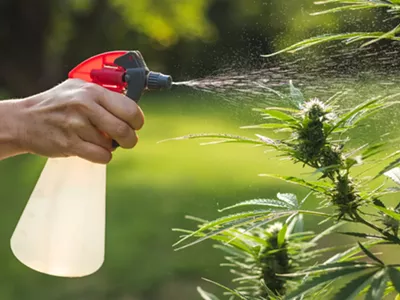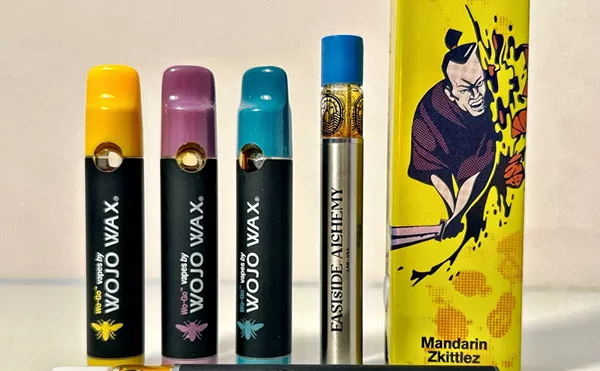Some medical marijuana provisioning centers are worried about their ability to survive the booming black market after state regulators severely cut off their supply of cannabis products.
Gov. Gretchen Whitmer's new state Marijuana Regulatory Agency decided last week to "immediately" ban the centers from buying marijuana from any of the more than 41,000 state-approved caregivers, the primary source of medical cannabis.
Now, all of the marijuana products — from flower and hash to concentrates and edibles — must be purchased from any of the roughly 20 state-licensed corporate growers and processors whose prices are much higher than caregivers'. Under the law, caregivers may sell their products to the corporate growers and processors, but the added steps will mean a higher price for the patients.
The corporate growers focus primarily on flowers — or "bud" — instead of the ointments, tinctures, edibles, cannabinoids, and concentrates that many of the state's 293,000 medical marijuana cardholders prefer.
As a result, the operators of Michigan's roughly 90 licensed provisioning centers will have fewer cannabis products, which will cost more than those available on the budding black market.
"It is now very difficult for provisioning centers to not only remain competitive but to give patients products at a competitive price," says Evan Pilot, financial controller of The Reef, one of the largest and most respected dispensaries in the state. "I truly think some of these fully licensed businesses that have done everything right are going to shut down."
Michelle Donovan, a lawyer for Butzel Long who sued Michigan over the caregiver issue, agrees — saying the state handed a big victory to the black market.
"Licensed dispensaries are going to go out of business," Donovan says. "They aren't going to compete with the black market. The giant growers don't have the products that patients want."
State regulators said the switch to corporate growers is intended to "protect the health and safety of the public" because the cannabis products are required to be tested for contaminants. They added that caregivers were never intended to be permanent suppliers of medical marijuana dispensaries and were only permitted to do so because the cannabis shops were running out of supplies.
They also insist the corporate growers and dispensaries have plenty of tested cannabis available — 5,266 pounds — but would not provide records to back up their claims.
Whitmer created the new Marijuana Regulatory Agency to address a backlog of prospective growers and dispensaries, but critics say the new bureaucracy is getting off to a bad start.
The black market is flourishing, with dozens of illicit "delivery services" cropping up in metro Detroit alone because Lansing is not enforcing a law that was supposed to create a safe, regulated system.
Now that caregivers can't unload their cannabis at dispensaries, critics say they'll saturate the black market with marijuana at lower prices than provisioning centers. In other words, state regulators have effectively discouraged cardholders from getting their cannabis from dispensaries, which pay state sales tax, regulatory overhead costs for testing, and labeling and hefty licensing and attorney fees.
"These are all bottom-line costs that, at the end of the day, make your product more expensive to the public," says Erick Moir, owner of Greenstone Provisions in downtown Ann Arbor. "We're providing quality, safe medicine for Michigan residents."
Last week, Court of Claims Judge Stephen Borrello, who has handled many of the cases against the state's medical marijuana regulations, said Michigan's rules are "apt to sudden change, freakish, or whimsical."
The Marijuana Regulatory Agency's missteps come at a critical time. Next month, the agency is expected to roll out drafts of the regulations for recreational marijuana, which is expected to be a $1.5 billion industry. With a 10 percent excise tax, recreational pot could be a windfall for local governments, roads, and schools.
But if state regulations continue to enable a flourishing black market, Michigan will miss out on a much-needed source of revenue.
Updated 2:17 p.m. on Tuesday, May 7: This story was updated to clarify that caregivers may sell their products to the corporate growers and processors.
It's a new era for marijuana in Michigan. Sign up for our weekly weed newsletter, delivered every Tuesday at 4:20 p.m.








